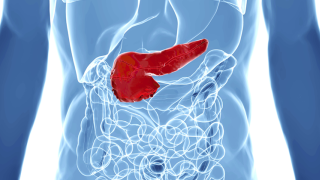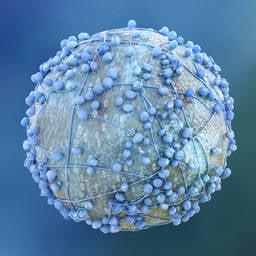Alex Trebek, the 80-year-old long-time host of Jeopardy, recently succumbed to Stage 4 pancreatic cancer, 20 months after his diagnosis in March 2019. Sadly, pancreatic cancer is one of the deadliest cancers in the U.S., and the five-year survival rate for those diagnosed is only around 9%.
Although pancreatic cancer only affects 3% of people with cancer, its mortality rate is higher than other more prevalent cancers. A recent study also revealed that pancreatic cancer, once considered primarily a disease reserved for the elderly, is now on the rise in young adults.
We spoke to Susanne Gray Warner, M.D., a surgical oncologist and assistant professor in the departments of Surgery and Immuno-Oncology at City of Hope, about what you need to know regarding pancreatic cancer diagnosis and current treatment options, and what she hopes to see in the future.
Symptoms are often vague
Many times, symptoms of pancreatic cancer present when the disease is already in a later stage.
“Symptoms like pain in the back between or just below the shoulder blades, or abdominal pain in the so-called 'solar plexus,' which is the midway point between your breast bone and your belly button, are often not present until later stages of disease,” said Warner.
“Jaundice, which leads to yellowing of the skin, darkened urine and clay-colored stools, is also a concerning symptom.”
Other symptoms like nausea, fatigue and weight loss are also possible, but these symptoms are vague and could be indicative of a variety of ailments, not cancer specifically.
Testing is available for high-risk individuals
If you have two primary family members who had or have pancreatic cancer (this includes parents, brothers, sisters and children), or if you suffer from genetic disorders known to increase pancreatic cancer risk such as BRCA mutations, mutations in the so-called “Fanconi’s Anemia Pathway” and other heritable disorders discussed below, regular surveillance and testing may be an option for you and should be performed under the guidance of a multidisciplinary pancreatic cancer care team.
Other illnesses may increase your pancreatic cancer risk
If you are overweight, obese or a smoker, your risk of developing pancreatic cancer is increased. African-Americans and men are more likely to be diagnosed with the disease, as are people older than 45.
“New-onset diabetes, especially in the setting of weight loss, or worsening diabetes control in the absence of dietary or bodily modifications, can also be concerning signs of pancreatic cancer,” Warner said.
Chronic pancreatitis is another potential warning sign.
People with chronic pancreatitis are at a higher risk of developing pancreatic cancer just because anytime you have inflamed cells, those cells are going be turning over more often, said Warner.
Anytime you have increased cell turnover, you have an opportunity for those cells to escape the normal pathways.
Other genetic syndromes that can contribute to a person’s pancreatic cancer risk include:
- Hereditary ovarian and breast cancer syndrome
- Familial atypical multiple mole melanoma
- Lynch syndrome
- Peutz-Jeghers syndrome
- Von Hippel-Lindau syndrome
Early detection is difficult, but improvements are in the works
Finding pancreatic cancer in its early stages is notoriously difficult. In the early stages, symptoms are hard to recognize, and the cancer spreads easily and aggressively. But there is hope on the horizon.
Researchers at City of Hope and all over the world are actively working to find blood tests that will be able to detect pancreatic cancer earlier, Warner said.
"In the last few years, some very exciting findings have been presented at national meetings, so I’m hoping that in the next five to 10 years, a test like this will be available, because right now, unless you are in a high-risk group, it’s not cost effective to regularly screen.”
Patients can be cured
In some cases, pancreatic cancer can be cured. If pancreatic cancer is caught early enough and it has not spread, surgery may be able to remove the malignant tumor and cure the disease.
The most important take-home point is that pancreatic cancer is not a death sentence. Even when patients cannot be cured, we are seeing survival times measured in years with modern chemotherapies," Warner said.It is important that patients seek out care at a high-volume specialty center like City of Hope to make sure they are not offered unnecessarily nihilistic views of this disease."
When it comes to pancreatic cancer, knowledge is power. Understanding your family history, becoming familiar with the risk factors associated with the disease and knowing potential symptoms will help you remain vigilant about your health and give you the best chance at discovering and treating this cancer successfully.

